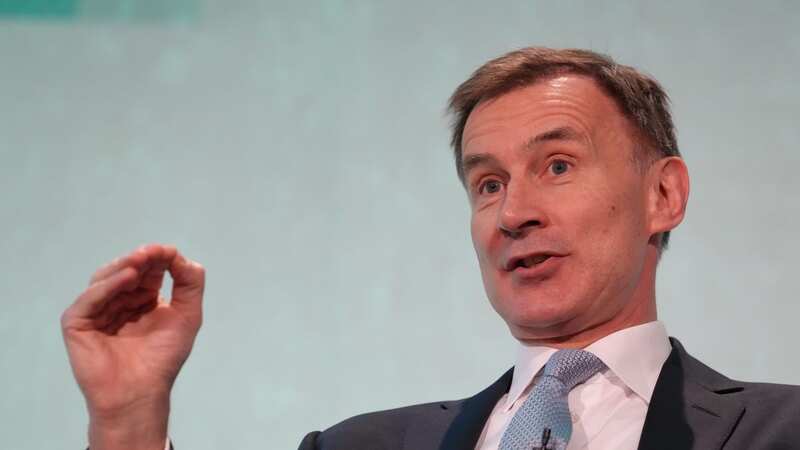Less room for tax cuts in the Budget than last year, Hunt tells Cabinet

Jeremy Hunt, the Chancellor, has reportedly told his Cabinet colleagues that there will be less room for tax cuts in the upcoming Budget compared to last year's autumn statement.
The Times first reported that the Chancellor told colleagues: "We are not likely to have as much room for tax cuts as we had in the autumn." During his economic analysis, it is understood that Mr Hunt pointed out "major structural weaknesses" in the UK economy, noting that countries like the US, France and Germany are all more productive.
This comes after the International Monetary Fund (IMF) warned on Tuesday that further tax cuts could risk the Government's ability to invest money in the NHS and other vital services. In November's autumn statement, Mr Hunt cut national insurance, a move that the Office for Budget Responsibility believes will cost the Treasury around £9.76 billion in the 2028 tax year.
This reduction, which came into effect on January 6, means that the main rate of national insurance was reduced by two percentage points, from 12% to 10%. The Treasury says this change means a worker earning a £35,000 salary will be £450 better off a year.
With a likely election later this year, Mr Hunt seems eager to cut taxes even further if possible, in an attempt to boost the Conservative Party's chances of pulling off a surprise victory. Prime Minister Rishi Sunak's party has been lagging behind Sir Keir Starmer's Labour in opinion polls for over a year, with some surveys showing a gap of up to 20 points.
 Teachers, civil servants and train drivers walk out in biggest strike in decade
Teachers, civil servants and train drivers walk out in biggest strike in decade
During a visit to the World Economic Forum in Davos, Switzerland, earlier this month, the Chancellor expressed his desire for the UK to follow the example of successful low-tax economies. Economists suggest that the Government borrowing less than anticipated in December might provide the Treasury chief with the opportunity to further reduce taxes in the Budget on March 6.
However, data from the Office for National Statistics in December indicates that debt levels are at their highest since the 1960s when compared to the size of the economy. In response to the IMF's briefing on Tuesday, Mr Hunt stated it was "too early to know whether further reductions in tax will be affordable in the Budget".
He reiterated the Government's belief that "smart tax reductions can make a big difference in boosting growth". There is growing pressure within Tory ranks for Mr Hunt to propose significant tax cuts in March as part of an effort to attract voters.
Health minister Dame Andrea Leadsom, when asked on LBC if she would like to see further tax cuts, said it is the Chancellor's ambition to "enable people to keep more of their hard-earned cash". She added: "I think there is no denying that tax cuts enable, facilitate economic growth."
"The 'full expensing' for businesses that the Chancellor introduced last year, the biggest ever tax cut, as I understand it, for businesses, will generate economic growth. I am a big fan of tax cuts but obviously I am not the Chancellor and cannot predict what steps he will be taking at the spring statement, which is quite soon now. But he will be looking to enable people to keep more of their hard-earned cash if he possibly can."
The International Monetary Fund (IMF) has lowered the UK's growth forecast for next year. The IMF expects the UK economy to grow by 0.6% this year, and 1.6% next. This would make the UK the second-worst performer in the G7 this year and joint third-worst in 2025.
The IMF's prediction for this year remains the same as its last report in October, but it has been lowered by 0.4 percentage points for next year. However, the IMF stated that this change is largely due to a revision to official data, rather than a worsening economic situation.
Read more similar news:
Comments:
comments powered by Disqus

































